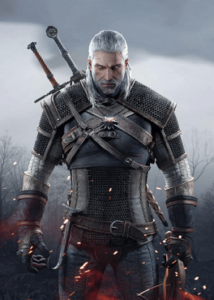A lot of hype can be seen for the next Witcher game in the gaming community, especially among fans of the RPG and action-adventure genre. The excitement surrounding The Witcher 4 has reached even greater heights after the release of its trailer on 13th December. This marks the beginning of a new chapter in this iconic series. With Ciri stepping into the protagonist’s role, the potential for an amazing adventure is undeniable.
However, one question remains- will the game be able to live up to its predecessor. Although it has been almost 10 years since Witcher 3 was released, the game is still being talked about, due to its immersive yet massive open world, interesting and unique characters and storyline. Many players feel that they don’t just play the game, but they feel as if they have been transported to another world.
Due to the massive success of Witcher 3, expectations for The Witcher 4 are extremely high. To live up to this legacy, The Witcher 4 must avoid a few key mistakes. Let us take a look at them.
5. Requiring High-End Graphics Cards, Consoles or Hardwares
One of the biggest concerns for gamers with the increasing power of next-gen consoles and PC hardware is the game’s accessibility. The Witcher 3 was a masterpiece that ran well across various platforms, but with The Witcher 4 potentially pushing the limits of technology, it’s crucial that the game doesn’t become a title that requires expensive, high-end graphics cards or cutting-edge hardware to run smoothly. The trailer indeed looks visually stunning, but developers need to remember that the game must remain optimized for a broader audience, ensuring it can be enjoyed by players with mid-range systems as well as those on the latest machines. This would preserve The Witcher series’ tradition of accessibility, allowing everyone to experience the game without needing to upgrade their setup.
4. Excluding Geralt

Geralt of Rivia has been the heart of the Witcher series, and his journey is one of the most compelling in video game history. While Ciri’s story offers fresh possibilities, Geralt, being one of the most loved video game protagonists, must not be left out or completely sidelined in The Witcher 4. Players have spent countless hours exploring the world as Geralt, understanding his complexities, and developing an emotional bond with him. His absence or marginalization would disappoint a large portion of the fan base. Even if Geralt is not the primary protagonist, his role in the story should be significant, whether through appearances, involvement in key plot events, or simply as a guiding figure in Ciri’s journey. Ensuring Geralt remains relevant in some capacity is vital to maintaining the emotional continuity that made The Witcher 3 so beloved.
3. Overreliance on Microtransactions and DLCs
One of the more frustrating trends in modern gaming is the growing emphasis on microtransactions and excessive downloadable content (DLCs), often leading to players feeling like they’re constantly being asked to pay more for content that should be included in the base game. This could be a reason behind the failure of Star Wars: Outlaws. The Witcher 3 succeeded because its expansions—such as Blood and Wine—felt substantial and were offered as complete experiences. The Witcher 4 must avoid falling into the trap of overloading players with microtransactions or DLCs that feel forced. Instead, the focus should be on delivering rich, story-driven expansions that feel earned, not just additional content designed to squeeze money out of players.
2. Not introducing Stealth Mechanics

One feature that The Witcher 3 lacked was the ability to employ stealth as a core gameplay mechanic. While Geralt’s combat skills and the RPG elements were outstanding, some players found the lack of stealth options limiting. So sadly, there was no way to approach certain quests more tactically, without getting into a full sword fight with the guards and soldiers. The Witcher 4 could greatly benefit from introducing a more refined stealth system, allowing players to choose between brute force and quiet, calculated approaches to challenges. Not only would this add more depth to the gameplay, but it would offer us more variety in how we can tackle problems.
1. Following Level-Gated Progression Model of Games Like Assassin’s Creed
One of the most frustrating aspects of modern RPGs, particularly in titles like Assassin’s Creed Origins, Odyssey, and Valhalla, is the level-gated progression. In these games, we often need to grind for experience and reach a specific level before we can access critical main story missions. This type of progression system can feel artificial, and extremely frustrating. RPGs should not force players to complete side quests in order to proceed with the core narrative, but it should be left up to the player. The Witcher 4 must avoid this approach. One of the strengths of The Witcher 3 was its seamless progression, where players were free to explore the world or continue with the story at their own pace, without feeling like they were artificially restricted by their level. Developers need to keep in mind that fluid progression system will preserve the game’s immersive quality, and allow us to enjoy the game without unnecessary barriers.
As The Witcher 4 prepares to follow in the footsteps of its predecessor, avoiding these mistakes will be crucial to meeting the high expectations set by The Witcher 3. Now the only question is – Will we really be seeing the game soon, or will it take much longer than expected?
Read about Witcher 4 gameplay here, which was officially released on 3rd June 2025.
If you are a Witcher fan, then you will definitely love Clair Obscur: Expedition 33, as it is a similar fantasy game set in a dark fantasy world. Check out our analysis!
